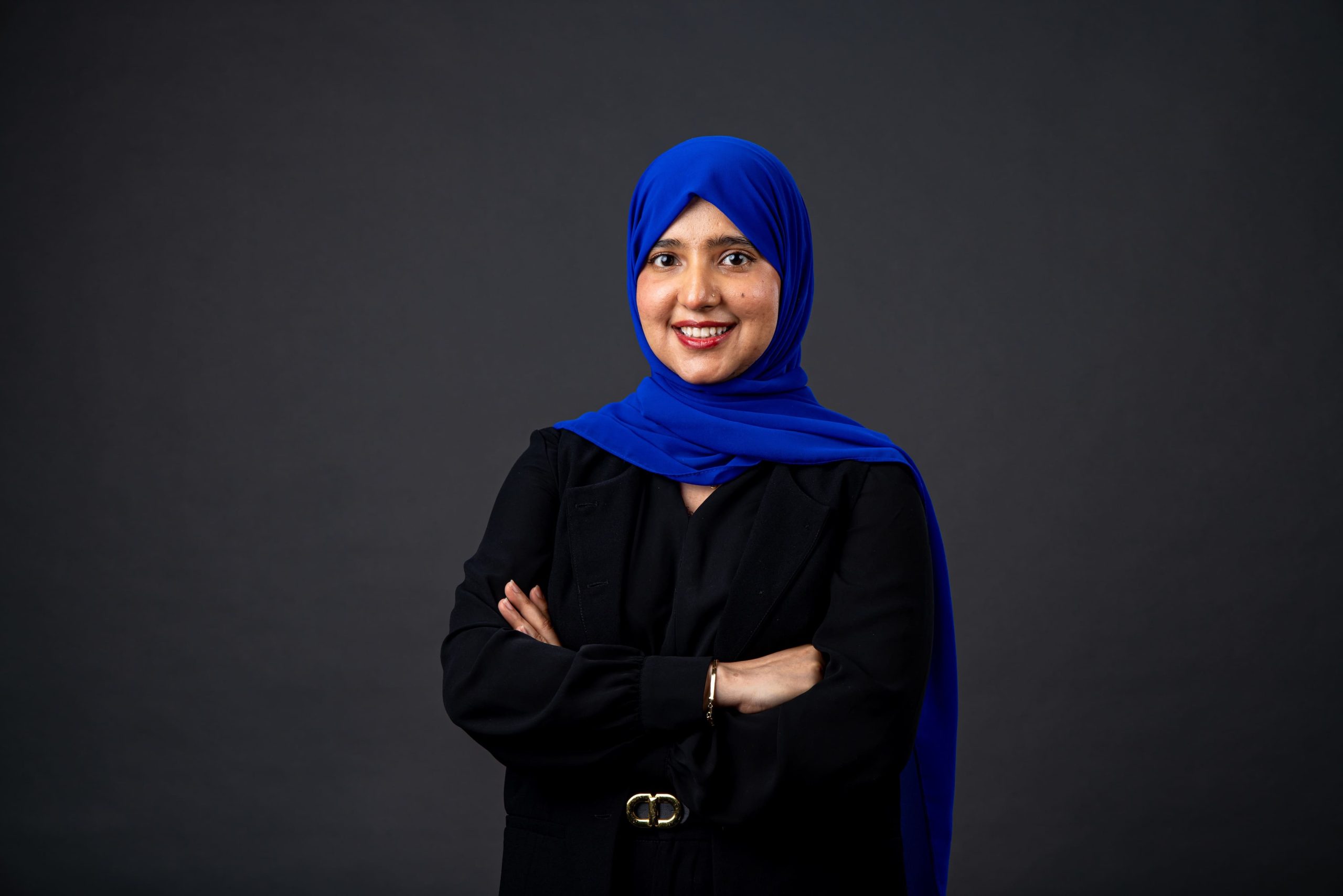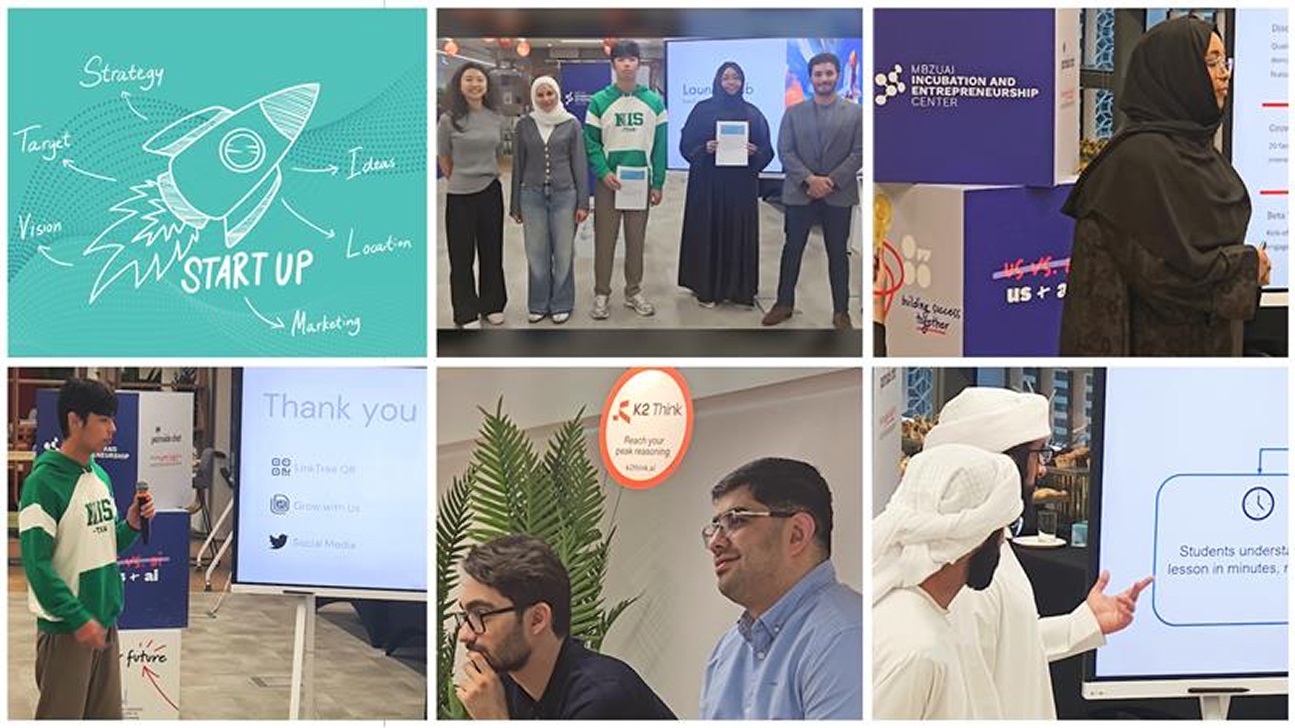Closing the gap for real-world AI deployment in healthcare
Monday, May 26, 2025

Misdiagnoses caused by poor AI generalization can lead to real clinical harm, making MBZUAI’s Umaima Rahman’s research vital to the safe and ethical deployment of AI in medicine.
A major hurdle of reliable artificial intelligence (AI) systems in healthcare is real-world deployment across multiple hospitals and clinics. AI models trained on medical images can fail when moved to a new hospital due to differences in equipment and image quality.
A doctoral student from Mohamed bin Zayed University of Artificial Intelligence (MBZUAI) has spent the past four years working on bridging this gap between cutting-edge research and impactful healthcare solutions for all. The key, Umaima Rahman says, is building models that can learn features that are consistent across different sources. That way, they can work reliably anywhere, from state-of-the-art hospitals to low-resource settings.
The 29-year-old Indian researcher will receive her Doctor of Philosophy in Computer Vision from MBZUAI this month. Her Ph.D. research focused on domain adaptation and generalization in deep learning, particularly for medical imaging. The critical challenge she’s addressing is how to build AI models that perform well across diverse hospitals, scanners, and image acquisition settings — where data distributions often differ significantly, known as out-of-distribution (OOD) generalization. This approach is especially beneficial for developing countries or resource-limited healthcare settings, where outdated imaging equipment is still in use.
“AI in healthcare is not just about performance drops — it’s about clinical risk,” she says. “Generalization isn’t a luxury; it’s a necessity. This kind of work can act as a screening method in places without the latest machines. It can reassure healthy patients and reduce panic.”
She further added: “There’s often a stigma surrounding AI—that it exists to replace human jobs and disrupt livelihoods. But in healthcare, I can say with confidence that AI is not here to replace doctors—nor should it be. Instead, our goal is to develop AI methodologies that assist and empower clinicians, supporting their decision-making processes and enhancing the quality of care. By advancing toward more reliable, interpretable, and efficient AI systems, we aim to make healthcare more accessible, equitable, and ultimately, improve lives on a global scale.”
Tackling high-impact problem in healthcare models
Driven by a passion to help contribute to ethical, scalable, and trustworthy AI solutions in healthcare, Rahman says her research journey has been both intellectually rigorous and personally meaningful, grounded in one of the most urgent challenges in medical AI: ensuring that models trained in one environment can also be used in another.
“Imagine a world where an AI model, trained to detect cancer from medical images with near-perfect accuracy, suddenly fails when deployed in a different hospital,” she explains. “The issue? A slight change in imaging protocol, and the model built on data from another institution can no longer perform. In medical imaging, where the stakes are literally life and death, this isn’t just an academic problem, it’s a matter of patient safety and equitable healthcare delivery.”
With an academic background in computer vision, Rahman’s interdisciplinary approach of combining machine learning and health data allowed her to tackle this critical problem in her thesis, “Advancing Out-of-Distribution Generalization in Medical Imaging”.
In simple terms, she explains that deep learning models learn patterns from images, but when those patterns shift due to different imaging conditions, performance drops. Her research ensures that models learn only domain-invariant features — characteristics that remain constant regardless of the hospital or scanner — making the AI robust and reliable across institutions.
Medical images like MRIs and X-rays often vary due to differences in scanners, protocols, or patient populations making it difficult for AI systems to generalize. To overcome this, Rahman developed label-efficient methods that disentangle core diagnostic features (e.g., presence of a tumor) from spurious domain-specific ones (e.g., scanner type), improving robustness under distribution shifts.
She extended this concept to vision-language models, showing that separating useful medical information across both images and text enhances zero-shot performance and reduces dataset bias.
Her thesis also introduces a “cross-disease transferability” approach, a term she coined herself, where a model trained on one disease can identify unseen conditions within the same organ. This is a strategy particularly valuable for rare or emerging diseases, such as during the early stages of COVID-19 — one of her notable projects.
Her other published papers explore different angles of this concept.
Growing as a researcher
Rahman’s MBZUAI experience, though intense, was deeply challenging, transformative, and fulfilling. ““Diving deep into this problem for healthcare was important,” she explains. “I was doing a lot on my own research at the start, which was hard — but once I got the first project done, everything fell into place. MBZUAI provided not just the resources but the space for me to grow, intellectually, emotionally, and professionally.”
The reality of this data made Rahman’s research even more complex due to privacy concerns, leading her to focus on more flexible, privacy-aware, and generalizable AI models that can support accurate diagnosis across diverse and resource-constrained healthcare settings.
“Access to large-scale, labeled clinical data is limited, especially when it involves protected health information,” she says. “If we can develop models that generalize well, even when trained on public or limited datasets and still deliver robust predictions on private clinical data, we can bridge a crucial gap in real-world deployment. That’s what makes out-of-distribution generalization such a high-impact problem.”
Presenting her research at Geneva University Hospital in Switzerland, Rahman was able to meet and engage with the curators of the real-world Shifts 2.0 dataset—the very dataset she had worked on. This experience was further enriched by meaningful interactions not only with experts in deep learning and AI but also with clinicians, who provided valuable medical insights and affirmed the real-world relevance of her work.
Combining passions from an early age
Healthcare wasn’t Rahman’s initial focus, but while completing her thesis for her Master’s of Technology in Computer Science and Engineering, a connection between computer vision and healthcare sparked, which has since grown. “It’s not just professional, it’s personal,” she explains. “I really want to carve a niche for myself in the field of AI for healthcare. Specifically, I would like to positively contribute towards UAE’s vision for AI for healthcare, where it wants to enhance patient outcomes, streamline operations, and position itself as a global leader in the field of innovation for healthcare. Graduating from MBZUAI, I feel really blessed to be at the right place at the right time, and I would love to take my research further.”
An internship at Inception was pivotal in helping her create this niche, working on a Dubai Health Authority project while also finishing a research paper that was published at top tier health conference, IEEE International Symposium on Biomedical Imaging (ISBI) 2025, where she was first author.
But behind Rahman’s research lies a deeper journey marked by early passion, cultural transitions, dedication and determination. Raised in Kolkata, she always excelled in science and math. By age 13, she knew she wanted to be an engineer. “I didn’t enjoy history or geography as much as I loved science,” she says. Her teachers and tutors nurtured that interest, and by Year 9, she had her sights set on an engineering career.
Despite being the first in her family to pursue a Ph.D., education runs deep. Her grandfather was a maths teacher, and her younger brother is now doing a Ph.D. at Oxford in machine learning-related networks.
Not only is she a first-generation Ph.D. holder, but Rahman is also part of the first female Ph.D. cohort to receive a doctoral degree from MBZUAI. A total of four women from the Class of 2025 will share in the experience.
Moving to the UAE alone was a big step after receiving her undergraduate and dual master’s in Kolkata, with her mother initially hesitant to let her leave the city. “But I convinced them,” she recalls. “It was my father’s dream to see me earn a Ph.D. Now they’re proud. They’ll be here (Abu Dhabi) for the graduation.”
Fighting for her right to study abroad and stepping into unknown territory, her story is one of resilience and purpose. Her long-term dream is to settle in the UAE, enter academia, and be an inspiration to young females to enter STEM.
“I’d love to become a professor one day,” Rahman says. “There are a lot of women in biomedical engineering, but not in AI. I hope that changes.”
Rahman is exploring applied AI research and postdoctoral opportunities globally, including NYUAD, Stanford, ETH Zurich, and MIT, and is particularly interested in continuing her research on domain generalization in healthcare AI. Despite international aspirations, she hopes to return to the UAE long-term, praising its safety, research community, and support for women in STEM.
“The UAE feels like home now,” she says.
Related
MBZUAI and Minerva Humanoids announce strategic research partnership to advance humanoid robotics for applications in the energy sector
The partnership will facilitate the development of next-generation humanoid robotics tailored for safety-critical industrial operations.
Read MoreMBZUAI's Launch Lab equips alumni and students with practical startup tools
The six-week pilot program brought alumni and students together to turn early startup ideas into tangible ventures.
- launch lab ,
- alumni relations ,
- startups ,
- alumni ,
- entrepreneurship ,
AI and the silver screen: how cinema has imagined intelligent machines
Movies have given audiences countless visions of how artificial intelligence might affect our lives. Here are some.....
- science fiction ,
- cinema ,
- art ,
- fiction ,
- artificial intelligence ,
- AI ,


